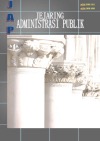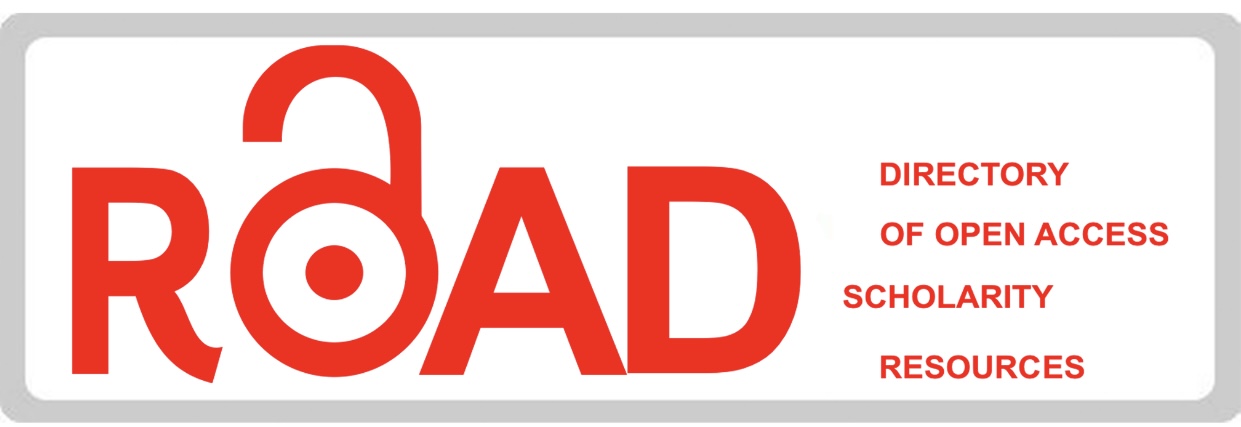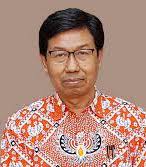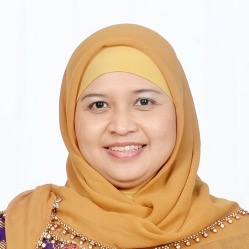Kebijakan Berorientasi Misi untuk Mempromosikan Teknologi Digital dalam Mengatasi Ketimpangan Pendidikan dan Mendorong Pembangunan Inklusif di Brasil
Downloads
The COVID-19 pandemic's consequences have increased inequality and poverty around the world, making it harder to meet the Sustainable Development Goals. One of the main issues is the lack of education experienced by those who are mostly socioeconomically disadvantaged. Due to the technology gap, many underprivileged kids were left behind during the lockdown and school closure since access to the digital tools and infrastructure required to provide continuity of learning remotely was adopted and accessed unequally. For example, 5.5 million children and teenagers in Brazil didn't have access to education in 2020. The present and future of a generation, their families, and the economic and productive capacity of the entire society are all impacted by such a loss, which enlarges the educational gap that already existed in the nation. This situation demonstrates the necessity for governments to prioritise strong measures to close the digital gap in addition to reopening schools. These policies can encourage learning and inclusion of children and adolescents in the information age, which is influencing new methods of learning, working, and living. As a result, this article analyses the digital education gap in Brazil's context and offers suggestions to the ministry of education. The goal is to direct the creation of well-structured policies to make use of technological opportunities to develop the fundamental educational system. The ideas are based on mission-focused and frame 3 innovation strategies, with a particular emphasis on bolstering digital inclusion in basic education, which is essential to advancing social justice and the SDGs.
Keywords: Mission-Oriented Policy, Digital Technology, Educational Inequality, Inclusive Development
Bardach, E. (2011). A Practical Guide for Policy Analysis: The Eightfold Path to More Effective Problem Solving. CQ Press
Braun, V., & Clarke, V. (2006). Using Thematic Analysis in Psychology. Qualitative Research in Psychology, 3:2, 77-101, DOI: 10.1191/1478088706qp063oa
Campanha (2021). Ní£o é uma crise, é um projeto. Os efeitos das reformas do Estado entre 2016 e 2021 na Educaçí£o. Caderno 1. Campanha Nacional pelo Direito í Educaçí£o – Campanha. Link: https://actionaid.org.br/wp-content/files_mf/1633966731NAO_E_UMA_CRISE_CADERNO1.pdf
Chancel, L., Piketty, T., Saez, E., Zucman, G. et al. (2022). World Inequality Report 2022, World Inequality Lab wir2022.wid.world. Link: https://wir2022.wid.world/
Denzin, N. K. (1978). The Research Act: A Theoretical Introduction to Sociological Methods. New York: Routledge
GTSC A2030. (2021). V Relatório Luz da Sociedade Civil Agenda 2030 de Desenvolvimento Sustentável Brasil. Grupo de Trabalho da Sociedade Civil para a Agenda 2030. Link: https://brasilnaagenda2030.files.wordpress.com/2021/07/por_rl_2021_completo_vs_03_lowres.pdf
Hulten, C. & Isaksson, A. (2007). Why Development Levels Differ: The Sources of Differential Economic Growth in a Panel of High and Low Income Countries, NBER Working Paper No. w13469
INEP (2021a). Pesquisa Resposta Educacional í Pandemia de Covid-19. Instituto Nacional de Estudos e Pesquisas Educacionais Anísio Teixeira - Inep. Retrieved April 29, 2022, from https://www.gov.br/inep/pt-br/areas-de-atuacao/pesquisas-estatisticas-e-indicadores/censo-escolar/pesquisas-suplementares/pesquisa-covid-19
INEP (2021b). Divulgados dados sobre Impacto da Pandemia na Educaçí£o. Instituto Nacional de Estudos e Pesquisas Educacionais Anísio Teixeira - Inep. Retrieved April 29, 2022, from https://www.gov.br/inep/pt-br/assuntos/noticias/censo-escolar/divulgados-dados-sobre-impacto-da-pandemia-na-educacao
Intel (n.d.). Pioneering program expands education opportunities across Argentina. Intel.it. (n.d.). Retrieved May 3, 2022, from https://www.intel.it/content/dam/doc/case-study/learning-series-pioneering-program-study.pdf
Mazzucato, M. (2015). Building the Entrepreneurial State: A New Framework for Envisioning and Evaluating a Mission-oriented Public Sector, Levy Economics Institute Working Paper No. 824, http://www.levyinstitute.org/pubs/wp_824.pdf
Mazzucato, M (2018). ‘Mission-Oriented Research & Innovation in the European Union: A problem-solving approach to fuel innovation-led growth'(European Commission, 2018)
Mazzucato, M. (2018). The Value of Everything: Making and Taking in the Global Economy. PublicAffairs
OECD (2021), Education at a Glance 2021: OECD Indicators, OECD Publishing, Paris, https://doi.org/10.1787/b35a14e5-en
PNUD (2021). Covid-19 e Desenvolvimento Sustentável: Avaliando a Crise de Olho Na Recuperaçí£o. Saúde Global. Programa das Naçíµes Unidas para o Desenvolvimento (PNUD), Fundo das Naçíµes Unidas para a Infí¢ncia (UNICEF) : Organizaçí£o das Naçíµes Unidas para a Educaçí£o, a Ciíªncia e a Cultura (UNESCO), Organizaçí£o Pan-americana da Saúde (OPAS), Retrieved April 30, 2022, from https://saudeglobal.org/covid-19-e-desenvolvimento-sustentavel-avaliando-a-crise-de-olho-na-recuperacao/
Schot, J. & Steinmueller, W. (2018). Three frames for innovation policy: R&D, systems of innovation and transformative change, Research Policy, Volume 47, Issue 9, November 2018,
The World Bank, UNESCO and UNICEF (2021). The State of the Global Education Crisis: A Path to Recovery. Washington D.C., Paris, New York: The World Bank, UNESCO, and UNICEF. Link: https://www.unicef.org/reports/state-global-education-crisis
UN. (n.d.). The 17 goals | sustainable development. United Nations. Retrieved April 16, 2022, from https://sdgs.un.org/goals
UN. (2021). The Sustainable Development Goals Report 2021. United Nations. Retrieved April 16, 2022, from ” SDG Indicators (un.org)
UNCTAD (2021). Technology and innovation report 2021. Catching technological waves: innovation with equity, United Nations, Geneva
UNDP (2020). COVID-19 and primary and secondary education: the impact of the crisis and public policy implications for Latin America and the Caribbean. United Nations. Retrieved April 27, 2022, from: https://www.latinamerica.undp.org/content/rblac/en/home/library/crisis_prevention_and_recovery/covid-19-y-educacion-primaria-y-secundaria--repercusiones-de-la-.html
UNESCO.(2022). Education: From disruption to recovery. UNESCO. (2022, February 28). Retrieved April 27, 2022, from https://en.unesco.org/covid19/educationresponse#durationschoolclosures
UNICEF (2021). Perdas de aprendizagem com a covid-19 podem custar a esta geraçí£o de estudantes quase US$ 17 trilhíµes em ganhos durante a vida. UNICEF. Retrieved April 27, 2022, from https://www.unicef.org/brazil/comunicados-de-imprensa/perdas-de-aprendizagem-com-covid-19-podem-custar-a-esta-geracao-de-estudantes-ganhos-durante-a-vida
Yin, R. (2009). Case Study Research: Design and Methods. SAGE Publisher
Copyright (c) 2022 Jejaring Administrasi Publik

This work is licensed under a Creative Commons Attribution-ShareAlike 4.0 International License.
All articles submitted by the author and published in the Jejaring Administrasi Publik are fully copyrighted to their authors under the Creative Commons Attribution-ShareAlike 4.0 International License. The formal legal aspect of journal publication accessibility refers to the Creative Commons Attribution-ShareAlike (CC BY-SA).

















